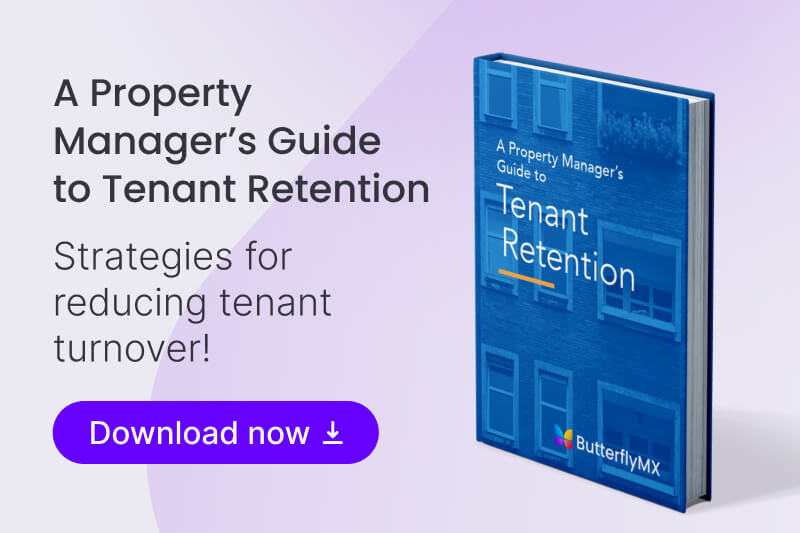Key takeaways
- Asset management is the handling of real estate portfolios and investments while property management concerns the daily operations of a property.
- Property management fits under asset management in terms of the role hierarchy.
- Good asset management involves balancing out the risks with investments, having transparency with clients, listening to property managers, and never letting a portfolio stagnate.
- Efficient property managers perform preventative maintenance, focus on tenant and employee retention, and keep building technology updated.

Asset management vs. property management are two important roles in the real estate industry that you should know the difference in the definition of property management and asset management. Both are important but while they correlate with one another, they also have key differences and responsibilities.
In this post, we’ll define both management roles and compare the two. We’ll also go over tips and strategies to be successful in each.
This post will cover:
- What is the difference between a property and an asset?
- What is the difference between asset and property management?
- Real estate asset management strategies
- Property management tips
What is the difference between a property and an asset?
Property is anything that can be owned, such as a house or claims to a resource (which includes land).
In contrast, an asset is anything worth something. Unlike property, assets don’t have to be tangible objects that you physically own. For example, stocks and bonds are considered assets.
Types of assets include:
- Equities
- Bonds/stocks
- Trademarks
- Licenses
- Rights
- Patents
You should know: Property, by definition, is an asset, because it’s usually worth a monetary value.
Watch how ButterflyMX can be an asset at your property:
What is the difference between asset and property management?
Asset management involves increasing the total worth of an individual or company over time by buying, selling, and improving investments. In contrast, property management involves handling the daily operations of a property, including property maintenance.
Just like how properties are assets, a property manager often fits under the umbrella of an asset manager. Property managers maintain or increase the value of a property. Then, the asset manager is made aware of any such increases in value. Finally, they can use that data to inform the property owner(s) of the property’s performance.
What is asset management in real estate?
In the real estate market, the property asset management job description includes purchasing, selling, and maintaining properties in order to increase a company or individual’s total portfolio value.
What is the difference between asset management and portfolio management?
An asset manager is a portfolio manager. But they also manage everything else with monetary value, including cash, properties, and investments. In contrast, a portfolio manager solely handles a client’s financial assets.

What is property management in real estate?
Property management in real estate is the act of managing the daily operations of a specific property. Property managers complete the day-to-day tasks associated with keeping the building running and make sure it’s generating income. A property manager in real estate also tries to work within the guidelines of a property management budget to increase the building’s value and maximize its NOI.
Asset management vs. property management
As we’ve explored above, asset management and property management roles have key differences.
Below, we compare and contrast the aspects of each job.
What about commercial real estate asset management vs property management?
When it comes to asset management vs. property management in commercial real estate, there aren’t many differences compared to multifamily real estate.
Commercial asset managers are still responsible for increasing the value of properties and their clients’ portfolios.
And commercial property managers are still responsible for the day-to-day operations of a building. But instead of residents, property managers oversee tenants. The amenities and needs of their tenants differ from apartment residents, but at the end of the day, their job is to meet those needs to the best of their ability.

Real estate asset management strategies
Asset management is a highly strategic position heavily involved with finances and investments. In the real estate industry, clients place a lot on an asset manager’s shoulders when it comes to buying and selling valuable properties.
Strategies of successful asset managers include:
- Balancing out the risks. Real estate investing has inherent risks. So when managing a client’s real estate portfolio, it’s important to always balance out the risks with a safe investment.
- Not being afraid to invest. There are risks, and then there’s investing money in the present to get more value in the future. A good asset manager knows the difference.
- Focusing on consistent revenue. Properties that promise continuous returns are the golden goose in a portfolio.
- Transparency. Asset managers must communicate clearly and constantly with their clients, real estate agents, and anybody else on their team.
- Continuous improvement. An asset manager should never be content with the value of a client’s portfolio. Instead, they should always be actively trying to increase its value. Sometimes that means selling a successful property because its value has stagnated.
- Listening to property managers. Nobody knows a property better than a property manager who’s there every day. So there’s a chance they have good insight into what can increase the property’s value.
Property management tips
Property management is a people-focused role that involves knowing everything about a building on the ground level. Most of a property manager’s time is spent keeping the building running and ensuring residents are happy.
Property management tips include:
- Perform preventative maintenance. This can prevent disruptions to residents and building operations. It can also save money in the long run, as keeping something from breaking is often cheaper than fixing what’s busted.
- Focus on resident retention. Making sure residents are happy and in no rush to leave is a massive gain for property managers. Long-term residents treat the building better, help foster a sense of community, and, most importantly, pay rent on time.
- Don’t neglect employee retention. The multifamily industry has a high employee turnover rate. Property managers can retain employees by investing in their professional development, setting up channels of communication for feedback, and hosting employee appreciation events.
- Install up-to-date technology. To keep a building attractive to residents (and increase its value for asset managers), installing new proptech such as video intercom systems and package rooms is a must.
How does a property management team use a management plan?
A management plan consists of the budget and operational strategy a property manager has to work with.
The goal of a management plan is to:
- Generate income.
- Increase the overall value of a property.
Management plans can often be designated by an asset manager.






